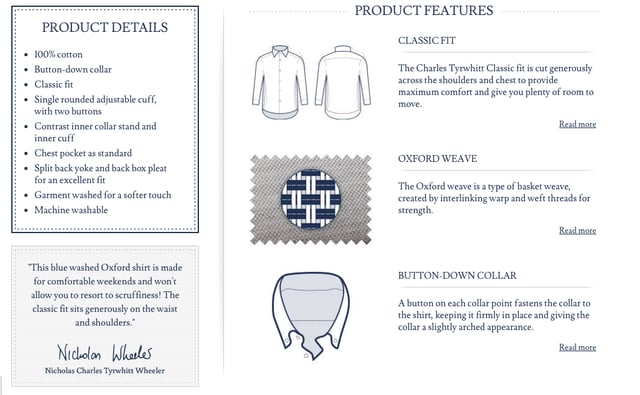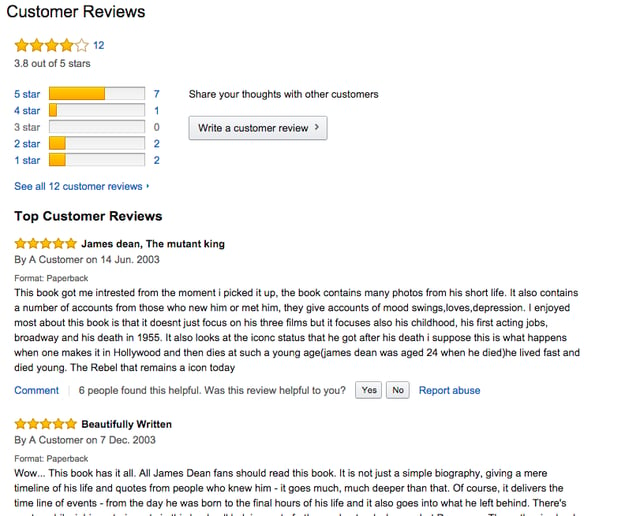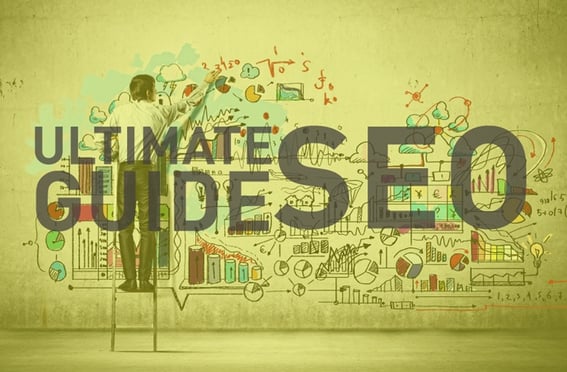How to Improve The SEO For Your e-Commerce Product Pages


As with most things, SEO for e-Commerce is actually much harder than is immediately apparent. Although you may think having the large quantity of product pages that eCommerce sites house would be ideal for search engines, this - actually - couldn't be further from the case.
This is due to most e-Commerce sites lacking basic on-page best practice. By on-page we refer to Search Engine Optimisation on each individual pages of a site - basically content on-the-page.
Poor on-page best practice usually results from the sparse nature of most product pages meaning search engines don't have enough content to deem relevant for its searchers. A nice blogging or information based website has plenty of content for search engines to crawl through and index, and thus can boost their on-page SEO quickly.
SEO for e-Commerce product pages is a different kettle of fish completely.
Not sure if you've nailed your on-page SEO basics? Check out our FREE SEO tool here!
Quality over quantity
Although high amount of products you have on your site may seem like the perfect environment for Google Spiders to crawl through - and yes we are still talking about digital marketing not The Amazon - Google actually doesn't index any page under 250 words. This means your hundreds of product pages are an endangered species (still digital marketing!) that need building up quickly.
In fairness to Google a 250 word minimum makes sense. Search engines don't want to provide their users with pages that have nothing on and a limit has to be set somewhere. Naturally, however, this provides problems for merchants who think they don't have enough content to beef up their product pages. This may seem a bit daft and immensely daunting as you now begin to visualise all the content you have to write but there are ways around this.
Google remember, although begin immensely clever and sophisticated, is still a computer programme. This means it will pick up everything on your product pages and index it. All in one big structured lump. This isn't to say that you can just bump your pages with keywords and other 'filler' content (this will get you penalised just the same), but does mean that you can make use of various other content outlets at your disposal (hurrah!).
Nail your basics
Firstly lets start with the obvious, yet very crucial, meta tags, URL structure and page structure. As mentioned in some of our other SEO blogs, these are simple, quick changes you can make to your page so that Google can instantly see what your page is about; what is on your page; and, how well your page will read for the searcher.
Updating your meta title's and meta descriptions will aid the organic rankings of your site, although a common mistake is to merely repeat the same meta tags across your site. Try whenever possible to keep these unique and relevant as you'll quickly be caught out by Google for replication.
This key information can boost your organic rankings quickly with minimum effort. The same goes for your URL structure. The better they are, the easier it is for Google to crawl your website, understanding exactly how each page is linked to one another.
Good URL structure looks like this: www.abc123.com/products/women/shoes/blue-shoes/adidas-123-a
Poor URL structure looks like this: www.abc123.com/products_womens_shoes/adidas_123_a43843897
Similarly with images and videos, search engines cannot read them without assistance. So adding alt(ernative)-text behind images will improve the ability for Google to correctly read your content.
Product descriptions
Here is the opportunity to expand you current content and improve its effectiveness. Although you mustn't just fill this with waffle, you can certainly increase the amount of information these provide. Using bullet points and other creative ways of displaying your content descriptions will keep your block text to a minimum (i.e. less daunting for searchers) whilst still providing enough content for search engines.
A fantastic technique for improving the scope of this is some sort of 'Manufactures Description'. This provides fresh new content whilst also giving your customers a different perspective on your items. The same can be done with content around the idea of 'expert' thoughts or some sort of objective based opinion. This is fantastically effective in terms of engaging a little more with your customers whilst providing them with useful expert insight.
Just look at this great example from Charles Tyrwhitt who have managed to provide real insight, expert analysis, personal thoughts, product details and product features all for one product!

This is a classic example of on-page SEO thinking outside the box. They have perfectly balanced combination of insight, product description and needs of e-Commerce SEO.
Customer reviews
Of course! Why produce your content when someone else can do it for you, and free of charge no less! This is great on so many levels.
Your product is going to be known by two groups of people best and one of them is willing to spend money on it, so why shouldn't their thoughts be right there on the page?
We have spoken about this in another blog, 3 Great Ways to Retain Customers, where we indicated that getting your customers to become your promoters is the best way to get others to your site. This applies here too with the SEO benefit underpinning the human element. Nothing screams 'buy me!', 'hire me!' or 'use me!', better than a good personal recommendation.
According to KissMectrics, "About 70% of buyers are looking for reviews of products on on-line stores or forums before making a purchase." This means not only are you missing out on a chunk of great customers by not offering the opportunity for others to leave their thoughts, but also great unique fresh content for search engines to crawl through.
Having constantly updating content, like customer reviews, is referred to as having live content. Having this type of content will increase the frequency at which search engines come back to your site to crawl for more information which is only a good thing.
Take a look at Amazon books (now we are talking about Amazon), they have provided the perfect platform for great content to be constantly produced whilst creating a conversation with its own customers.

There must be 250 plus at least in that first post! And if it couldn't get any better, they'll be using keywords which your potential customers will be using as well! Customer reviews: the SEO gift that keeps giving!
Conclusions
Although the main take-aways appear to be lots of incremental changes, it really should be: put your users first.
Make everything you change on your product pages benefit them. Create engaging and interesting descriptions; provide genuine insight; give them useful comparable product information and check-list and give them somewhere to express their thoughts on your product.
Google is a business that cares very much about its users. So you should ensure your e-Commerce site is convenient and useful for customers in order to achieve its respect. What is good and unique to your clients – it’s good for Google!
More from Website Visibility

What is SEO?
Successfully increasing your company's website visibility is the bread and butter for any business looking to generate more...
10 Actionable Tips to Improve your On-Page e-Commerce SEO Today!
Boosting the traffic, in particular, relevant traffic to your site is important no matter which business plan you are pursuing....







